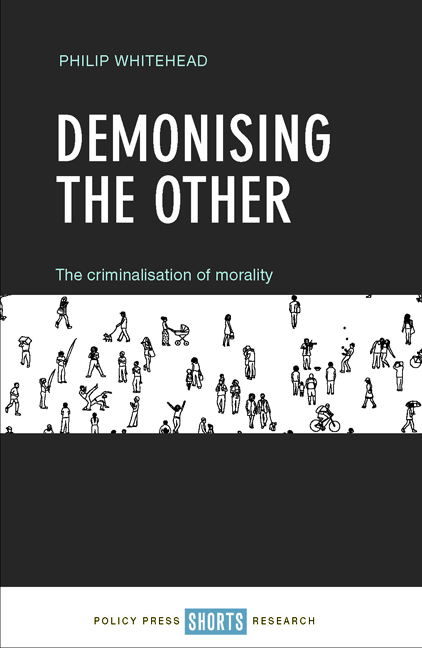Book contents
- Frontmatter
- Dedication
- Contents
- Prologue
- One Framing the other: stepping into the stream of history
- Two Criminalising the other: a criminal justice excursus
- Three Contesting the other: sinking ethical shafts
- Four Transcending the other: moral economy and universal ethics
- Concluding comment
- References
- Index
Three - Contesting the other: sinking ethical shafts
Published online by Cambridge University Press: 08 April 2022
- Frontmatter
- Dedication
- Contents
- Prologue
- One Framing the other: stepping into the stream of history
- Two Criminalising the other: a criminal justice excursus
- Three Contesting the other: sinking ethical shafts
- Four Transcending the other: moral economy and universal ethics
- Concluding comment
- References
- Index
Summary
The question threading its unsettling course through the Western philosophical tradition since the era of classical Greece, several centuries after the Agricultural Revolution, is: why is there something rather than nothing? There is no essential requirement for the existence of something rather than nothing, no necessity for planet earth and its universe of orbiting satellites, not even the existential necessity for Homo sapiens appearing 200,000 years ago. Theological perspectives, religious sensibilities and assorted wishful thinkers are disturbed by the thought of a series of inexplicable accidents that began with a big bang 4.5 billion years ago. Surely, the fact that there is something rather than nothing is for a reason. For example, this something is infused with purpose because human beings exist for the pleasure of the divine presence. There may well be one or two glitches along the way – a massacre here, a mass shooting there, pogroms directed against Jews, chemical attacks, racial tensions, the periodic slaughter of innocents, cultural revolutions, the hideous obscenities of the Syrian and other conflicts, and assorted genocides. However, we are invited to take comfort in the thought that God, or the Absolute, Reason or Spirit, is up there and out there bringing a transcendent purpose to fruition through the historical process by establishing a foothold in human consciousness. History may well be a slaughter bench; the bones of the innocent bleached white by the centuries. However, do not despair because, eventually, all will be well. What webs we weave with fragile strands of myth and imaginary scripts to dispel despair and cling to the kingdom of hope.
Given that there is something of which we are a part, rather than nothing, a silence, an absence, though we cannot say how or why with certainty, a subsidiary question of equal importance is why the history of this something has not assumed the content and form of something else? Since the Agricultural Revolution around 12,000 years ago (see Chapter One), why this account of human existence and not another? Why have things turned out as they have, and not differently? We could be recounting a very different human story, one of ethical triumphs, mass cooperation networks, national and international mutual coexistence, and living as one humanity under conditions of equality within the circuits of a moral economy.
- Type
- Chapter
- Information
- Demonising the OtherThe Criminalisation of Morality, pp. 47 - 80Publisher: Bristol University PressPrint publication year: 2018



